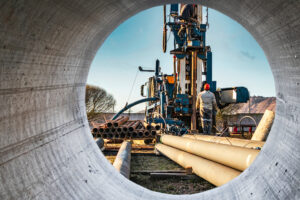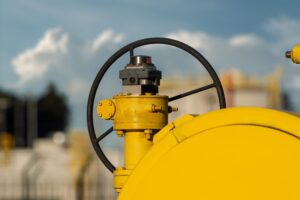Oil is now approaching its highest level in two weeks in New York trades just hours after U.S. voted Barack Obama as president for a second four year term as President.
Futures dropped less than 1% for the U.S., one of the world’s biggest crude-consuming nations.
When all the major networks began to show their projections of Obama winning (and especially once Romney conceded defeat), oil rallied along with gold as the dollar fell.
Investors are speculating that this victory increases the chance for a U.S. monetary stimulus to continue and further weaken the currency as well as boost dollar-denominated commodities.
“The idea in the market that Obama is more in favor of further monetary intervention than Romney helped lift gold and oil and weaken the U.S. dollar in response to his election,” per Jeremy Friesen, a commodity strategist at Societe Generale SA in Hong Kong.
West Texas Intermediate crude (for December 2012 delivery) was trading up a penny at $88.72 a barrel on the New York Mercantile Exchange electronic trading. The contract had dropped after the election results as much as 84 cents to $87.87.
Keep in mind that prices for this crude gained $3.06 yesterday to $88.71, the highest close since 10.22.12. The futures have more than doubled since Obama took office almost four years ago, but down about 10 percent thus far this year.
London-based ICE Futures Europe exchange (for December settlement on Brent oil) and European benchmark crude on the New York-traded WTI are up.
The dollar has fallen less than a half percent per euro after first gaining about 0.2 percent. Gold has increased thus far to 0.6 percent (at $1,726.57 per ounce).
Investors are also keeping in mind that although the House of Representatives passed a bill in July 2012 to almost double the number of oil and gas lease sales through 2015, the president has gone on the record threatening to veto the bill.
So, Obama’s victory reduces the probability of the United States expanding oil and gas drilling offshore as well as on federal land.
“Unless the U.S. economy revives, there’s unlikely to be a big jump in prices,” per Kotak Commodities Services Ltd. (in Mumbai), Dharmesh Bhatia. The associate vice president said, “Demand needs to go up. Prices may rise to $95 to $96 a barrel during the U.S. winter season, but will fall back again.”
Yesterday, the Energy Department reduced their projection for crude price in its monthly Short-Term Energy Outlook from the Energy Information Administration. Speculating that global production will outpace demand during the fourth quarter of 2012, WTI is now projected to average $94.51 per barrel this year (down from the October 2012 forecast of $95.55 per barrel).




